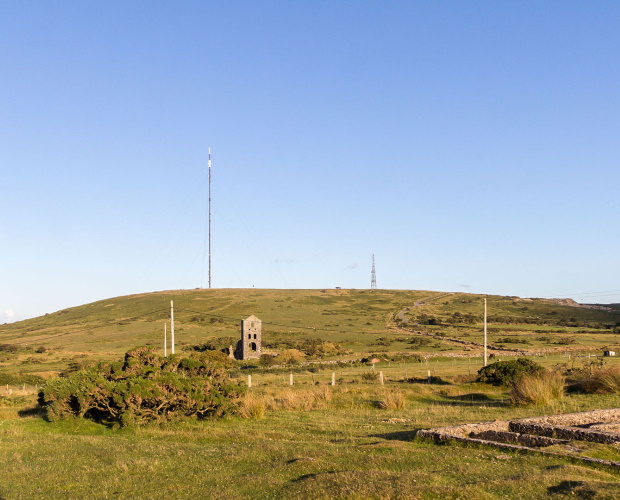T: 01822 851370 E: admin@sparse.gov.uk
02/08/2022 - Older People in Rural Market Town Areas Sounding Board

TUESDAY 2nd AUGUST 2022
- You can download a copy of these minutes here
Present:
Cllr Tony Leech - Okehampton Town Council
Cllr Claire Wilding - Charlbury Town Council
Cllr Tony Hirons - Lutterworth Town Council
Cllr Ewen Sinclair - Ledbury Town Council
Cllr Alan Brown - Corsham Town Council
Cllr Emma Hix - Wincanton Town Council
Cllr Karen Britton - Lechlade Town Council
Cllr Liz Parker - Oxted Town Council
Cllr Sarah Cavell - New Alresford Town Council
Cllr Peter Guest - St Austell Town Council
Cllr Lee Hatcher - Cranbrook and Sissinghurst Parish Council
Graham Biggs MBE - Chief Executive RSN
David Inman - Corporate Director RSN
Apologies:
Cllr Caroline Cross - Irthlingborough Town Council
Cllr Jane Smith - Market Rasen Town Council
Cllr Phil Shaw - Petersfield Town Council
OPERATION OF THE SOUNDING BOARD
There were initially to be two sounding boards being operated by the Rural Market Towns Group in this area.
One of these, this one, would relate to Older People. The second would be in relation to Young People.
REASON FOR OPERATION OF THE SOUNDING BOARD
There were no organisations or other mechanisms in England which provided dedicated focus to the situation relating to older people in the rural areas of England. Initial canvassing had taken place with RMTG Member Towns/Parishes, and some 30 Councillors had volunteered to form this Sounding Board looking at problems which the Towns older people might face. As the recent COVID and Economic Situations demonstrated life challenges continually changed in relatively short time spans and it was felt there was the need for rurally based Sounding Boards that gave some frequency to the consideration about the various social issues facing rural sectors.
It was hoped that the work of this Older People Sounding Board might provide the opportunity for
- Comment from Town representatives about local issues facing older people being foreseen as occurring in Rural/Market Towns across England.
- The opportunity through survey work to establish the consensus view on a variety of topics relating to Older People in England’s Rural Towns and Areas.
- The gathering of anecdotal evidence from group representatives and where possible also empirical material.
- The opportunity to inform those governmental and dedicated national organisations considering matters relating to Older People in England of the views from this rural group from a grass root perspective.
THE RURAL SERVICES NETWORK
David Inman briefly explained how the Rural Services Network operated through a variety of groups including the Local Government Association Special Interest Group relating to Rural Services (Local Authorities), the Rural Services Partnership (rurally interested national and area non-Council based organisations), the Rural Health and Care Alliance (Heath organisations in English Rural Areas), the Rural Services All Party Parliamentary Group of MPs and members from the House of Lords (APPG).
He detailed how Local Council Groups were now sought to be established by the RSN through the Rural/Market Towns Group and a Grouping relating Village Services involving some Parish Councils.
A Company formed by the RSN, Rural England CIC, looked to undertake independent rural research where it was felt to be necessary. Rural England every few years (most recent was 2021) undertake a significant State of Rural Services report, and it was hoped the work of both Sounding Boards might assist in informing this report in the future.
FIRST THOUGHTS
Councillors were invited to come forward with their personal view about what the prevalent issues in relation to older people in their rural market towns might be. The following we recorded from this ‘round the table’ session.
- Communication and the danger of missing people.
- Older people feeling a lack of engagement but equally many will not seek help/support
- The vital importance of first contact. Some Councils were continuing with specific schemes.
- The high number of older people ‘remaining in COVID shock’ and a remaining reticence from many to go out much as they remained frightened. Resulting in an increased number of ‘vulnerable’ older people
- COVID and its accompanying measures were acting as a continuing ‘brick wall’ in respect of many older people than was being assumed
- Many older people did wish to learn IT skills new to them if the opportunity was presented to them
- Lack of awareness by many older people about the availability of insulation grants and by some a reluctance to apply for financial assistance
- Centralised services and services only available on-line were making rural elderly people feel increasingly remote
- Transport- decreasing services were frightening and there was a need for hotlines to be operating to keep old people better informed. The transport deficiencies were becoming a greater and greater rural problem – including the increased costs of transport
- The age of volunteers
- Data protection measures were acting as a barrier in terms of older people
- Many older people were very quickly becoming fuel poor and were frightened about the coming months
- Community Fridge initiative.
- Much concern about the bank closures coupled with older people not having IT skills.
- Many of the real problems are in remote rural areas rather than the towns
DEFINITION OF OLDER PEOPLE
Discussion took place about at what age might the term apply in respect of the Board’s work. It was decided as conventionally occurred it would be from age 65.
CENSUS DATA
Please note that these statistics will include the populations of Market Towns in the Group.
The group were presented with the latest initial material gathered from the 2021 Census in respect of the national position.
These were as follows:
- A 27% increase in Predominantly Rural areas of the 65 years and over age group population (Census 2011 to 2021), meaning this age group now accounts for 24% of PR total population, an increase from 20% in 2011.
- A 28% increase in Urban with Significant Rural areas of the 65 years and over age group population (Census 2011 to 2021), meaning this age group now accounts for 21% of SR total population, an increase from 19% in 2011.
- A 15% increase in Predominantly Urban areas of the 65 years and over age group population (Census 2011 to 2021), meaning this age group now accounts for 16% of SR total population, an increase from 15% in 2011.
- For the 85 and over age group, although the population has increased in PR and SR areas by 22% and 24% respectively, as a fraction of total population in these areas they remain at 3% for both. The fraction for PU remains at 2%, with a 12% increase in population in this age bracket.
|
All persons |
Aged 65 years and over |
Aged 85 years and over |
||
|
Census 2021 |
Predominantly Urban |
36837900 |
5896800 |
776800 |
|
Predominantly Rural |
11724800 |
2857500 |
375700 |
|
|
Urban with Significant Rural |
7927100 |
1647600 |
218600 |
|
|
|
56489800 |
10401900 |
1371100 |
|
|
Census 2011 |
Predominantly Urban |
35056370 |
5118039 |
696174 |
|
Predominantly Rural |
11057745 |
2256381 |
307473 |
|
|
Urban with Significant Rural |
6898341 |
1286109 |
176481 |
|
|
|
53012456 |
8660529 |
1180128 |
|
NB: Local authority boundary changes have occurred between Census 2011 and 2021.
It was clear that the differing patterns identified in earlier Censuses between urban and rural areas was further widening with rural areas having a considerably higher percentage of their population over 65 years in age as was the percentage of the population at over 85 years of age. The irony that this process was occurring at a time when there had been service reduction due to budget tightening was commented upon.
Further relevant statistics would continue to be presented to Sounding Board Meetings as they became available
POTENTIAL SPEAKERS FOR FUTURE SOUNDING BOARD MEETINGS
This was discussed. The favoured priority appeared in the first place to be able to hear from representatives from the National organisations involved with Older People and /or from the other Rural Organisations. The Alzheimer's Society and ACRE were suggested. Decided to leave a decision until after the survey referred to below was completed.
A PRIORITY SURVEY
It was planned to run a short survey of the Sounding Board membership to establish, what concerned members of the Sounding Board most in relation to the areas which affected older people. Discussion took place about these areas where a view on prioritisation would be a useful process.
Suggestions for this survey exercise were:
- The challenge of keeping engaged with all the possibly vulnerable people in the Town and some people feeling isolated as a result if not all are reached.
- Transport deficiencies.
- Broadband and Mobile Phone Limitations.
- Lack of appropriate housing to meet the needs of older people in their local area
- The accelerating cost of living in a rural area.
- Isolation/loneliness
- Crime and Fear of Crime.
- Heath and Social Care.
- The ageing population generally.
- The ongoing legacies of COVID.
- The need for teaching of many older people concerning IT issues.
Those present would be consulted by email on the draft questionnaire. The priorities for the Sounding Board would be considered following this survey.
CONTINUING OPERATION OF THE SOUNDING BOARD
Members who were present were asked if they wished to operate the Sounding Board as solely relating to just Market Towns or whether as there was to be a Rural Village Services Group as well whether they felt there might be more benefit in operating totally jointly with that Group so that one Group would cover Rural Market Towns and Rural Villages and their surrounding areas. Members were of the view that two Sounding Boards should be run and that the Market Towns Sounding Board should continue to be run separately.
SIGN UP TO OUR NEWSLETTER
Sign up to our newsletter to receive all the latest news and updates.







